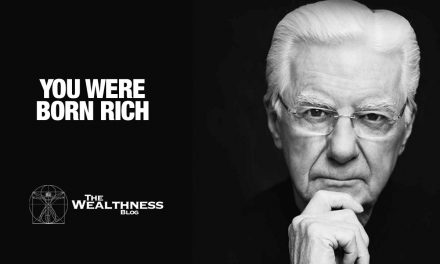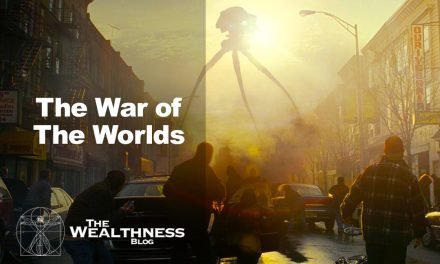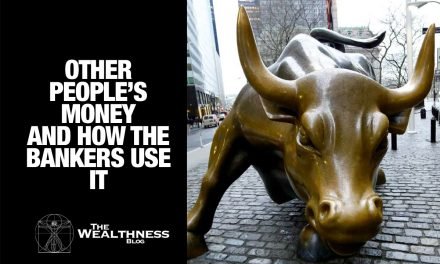Now You Can Discover and Develop Those Riches
For over 50 years, Bob Proctor has successfully helped millions of people realize their personal and financial goals using the formula he has laid out in this step-by-step manual.
Proctor Gallagher Institute
5010 E Shea Blvd
Suite 255
Scottsdale,AZ 85254 800-871-9715
480-767-2458
480-661-1014 fax www.proctorgallagherinstitute.com
ISBN 9781599303673 10 9 8 7 6 5 4 3 2 1
DEDICATED TO LINDA who brought the sun from the south with her and willingly shared it with Brian, Colleen and Raymond.
One And Only You
Every single blade of grass,
And every flake of snow
Is just a wee bit different
Theres no two alike, you know.From something small,
like grains of sand,
To each gigantic star
All were made with
THIS in mind:
To be just what they are!How foolish then, to imitate
How useless to pretend!
Since each of us comes from a
MIND Whose ideas never end.Therell only be just ONE of ME
To show what I can do
And you should likewise feel very proud,
Theres only ONE of YOU.That is where it all starts
With you, a wonderful unlimited human being.James T. Moore
Foreword
Zig Ziglar may be the master motivator, Mark Victor Hansen of Chicken Soup For the Soul, the master storyteller; Anthony Robbins may be the guru of personal development, but Bob Proctor is the master thinker. When it comes to systematizing life, no one else can touch him. He is simply the best. Bob Proctor collects thoughts like Imelda Marcos used to collect shoes. He strings them together in exquisite arrays; one thought leading logically to the next until a whole method has been constructed.
In this volume, You Were Born Rich, Bob Proctor has done it again, this time taking you step by step to the surprising discovery that success is not always reaching out for something that you dont have but rather only reaching over and rearranging the pieces already there. I read with fascination as Bob carefully built his case and then found myself instantly applying his conclusions to ongoing projects and relationships. Therein lies the great value of this book. You can instantly apply the conclusions to your own life. It will begin to impact you long before you reach the last chapter.
Bob often says that he is not really making suggestions that are new, that in fact we already, instinctively know these truths. He may be a little modest in this regard. He certainly offers nuances that are new to me and some may make the difference between success and failure. I found that even some of his obvious success ideas were dormant and unappreciated in my own life. And the ones that I thought I knew and understood, the ones that I personally subscribed to that were active in my life, well they were re-arranged in an order that made them even easier to put to use. Practical, that is the word that comes to mind, the theories in You Were Born Rich can work for anyone, anywhere, at anytime.
Remember, Bob Proctor is a direct link to the modern science of success stretching back to Andrew Carnegie the great financier and philanthropist. Carnegies secrets inspired and enthused Napoleon Hill, whose book Think and Grow Rich in turn inspired a whole genre of success-philosophy books that now take up large sections of modern bookstores. Napoleon Hill, in turn passed the baton onto Earl Nightingale, who has since placed it in Bob Proctors capable hands.
Bob Proctor sat at the feet of these giants at Nightingale-Conant and their whole stable of speakers and writers, growing to love and appreciate their discoveries before ever attempting to build on them himself. But once he began to share his own knowledge of these timeless principles, the flow never stopped. His books, tapes and internet messages have inspired millions. (Email insights@bobproctor.com and ask to be put on his free thought of the day program. I start my morning with it.) So when you are tapping into the wisdom of Bob Proctor, you are in for more than a review of the latest success fad of the decade. You are tapping into the embodiment of an ongoing study of human nature and success that spans three generations. Bob Proctor is the curator of this science of success and this powerful book offers a generous display of some of its many treasures. This is a great read!
Doug Wead, Former Special Assistant to the President in the Bush White House
Introduction
If youre looking for something new in life, something more fulfilling, exciting or a new path to travel on, you just found it. Sit back, relax and dont lay this book down until youre finished. It has a magical quality about it.
Permit me to briefly share my experience with Bob Proctor and the information he shares. In August of 2006, I walked into a seminar in Vancouver, Washington and my life began to move in a totally different direction.
For the prior twenty years, I had operated a very successful legal practice. Little did I realize that the information I was receiving in that seminar would cause me to close my practice, leave the law profession and begin a totally new career.
The information that would cause me to make such a radical shift is the information that you are holding in your hands.
Bob Proctor was conducting the seminar that I attended and from the front of the room he was firing ideas at a rapid clip ideas that were taking us on a journey, and we were traveling in the opposite direction to the one I had been following my entire life.
Through my formal education years and my entire professional career I was on an orthodox path that ninety some percentage of our population follows their entire life. And among that group, I was at the top of the class, enjoying what most people regard as real success. However, as I followed Proctor on his trail of ideas, I began to feel as if Id been living in a prison my entire life and I was finally beginning to experience freedom.
These next few words echoed in my mind over and over again in the coming dayshe said, Most people are extras in their own movie. And I realized I wasnt the star of my movie at all. I was really an extra. Someone else was always the star, and I was forever trying to please them, trying to measure up to what I thought their standard was, never performing at a level that I believed they considered acceptable.
I was forty-three years old and I had been doing what I thought other people thought I should be doing with my life. While I sat in that seminar I took many of the ideas that you are about to explore and permitted them to activate my imagination. I began to dream of what my life would be like if I would just follow my own path, do my thing, and do it to the best of my ability every day.
I was getting excited. And I can promise you if you will permit yourself to get emotionally involved with the ideas that you are about to read, you will get excited. And I mean really excited, dreaming of what you are capable of doing.
It was in that seminar that I became acutely aware we are Born Rich. You are, I am and so is everyone else. However, by following someone elses path, we squander those riches. We never truly develop them and become the person God meant us to become.
You are about to experience a feeling of tremendous power. It will flow into your brain. It will change how you feel. It will change how you act. It will totally and completely shift your perception of life.
Bob Proctor has done a magnificent job laying out the chapters in this book from the beginning to the end
like an easy to read map that will guide you from where you stand right now to any destination of your choice. By letting the ideas in this book fill your consciousness, your life will instantly become a fascinating journey. But that journey is not going to begin as if youre walking through a beautiful flower garden. When you lay this book down youll be confronted by construction sites, detours and potholesin other words, a respectable amount of resistance from virtually everyone you know. I am speaking from experience. This is not something Ive imagined. As you begin to live your dream, you must keep in mind, you are moving in the opposite direction to that which you have been conditioned to follow.
On the Korean Memorial wall in Washington, D.C., in bold letters, these words are engraved Freedom is not free. If youre going to live your life, the way you want to live, understand the price is high. And it does not come easy. However, the rewards are phenomenal. They are rewards that only a very small, select group of people ever collect. I enjoy those rewards today. And I enjoy mixing with people on a daily basis who also enjoy them. You see the beautiful truth is that when we begin to experience freedom, we attract into our life other people who are also enjoying freedom.
Yes, the rewards are tremendous and theyre there for everyone. Make a decision right now that you will read and re-read this book until you are well-established and very familiar with the path that Bob Proctor has laid out for us here.
And as you become comfortable on your journey, remember the lessons that are taught in the lyrics of a great song written by Oscar Hammerstein II, A bells not a bell til you ring it, A songs not a song til you sing it, Love in your heart wasnt put there to stay, Love isnt love til you give it away! As you begin to live with these beautiful ideas, youll only truly enjoy them as you begin to share them.
The destination I established prior to that seminar ending was that I would be part of the inside circle of Bob Proctors company and marvelous things have happened since I set that goal. Today I am the President & CEO of Bob Proctors group of companies, operating in 89 countries, scouting new trails every day.
Table of Contents
Chapter One Me And Money
- The Edgewater Beach Hotel
- Money Is Important
- Money Is A Servant
- Money Must Circulate
- Prosperity Consciousness Exercise
- Fear Not
- Understanding vs. Memorization
- Strength Through Sharing
- Prosperity Consciousness
- There Is Real Power Within You
- Mental Money
Chapter Two How Much Is Enough?
- How Much Is Enough?
- Bloom Where You Are Planted Start Now
- A Part Of All You Earn Is Yours To Keep
- Your Financial Independence Account
- Orderly Debt Repayment Program
- Debt Clearance Account
Chapter Three The Image-Maker
- You Are An Image-Maker
- The Minister And The Farmer
- Building The First Chair
- Going To The Movies
- Personal Prosperity
- Persistence Always Pays
- Paul Hutseys Story
Chapter Four Let Go And Let God
- Potential Is Everywhere Always
- Let Go And Let God
- Clarence Smithisons Story
- David and Goliath
- When Times Get Tough
- Do Not Force It To Happen
Chapter Five Expect An Abundance
- The Light Bulb Tale
- As A Man Thinketh
- Pat and Johns Story
Chapter Six The Law Of Vibration And Attraction .
- Dr. Wernher von Braun
- Vibration
- Positive And Negative Personalities
- The Brain The Body
- Everything Is Energy, Everything Vibrates
- Let There Be LightYour Connecting Link
- Everything Is An Expression Of The Same Thing
- Helping Others Feel Better
- Vibrations And Attitude
- Become A Mental Magnet
- The Acorn Analogy
Chapter Seven The Risk-Takers .
- The Diving Board Analogy
- Flip Wilsons Story
- The Young Millionaires
- Fighter Pilot Study
- Risk-Taking vs. Irresponsibility
- Investments
- Business Failures
Chapter Eight The Razors Edge
- Heinz Daues Story
- Milt Campbells Triumph
- First Artificial Heart
- Simulation
Chapter Nine Dont Think In Reverse
- Let The Dead Bury The Dead
- Polaroid Camera Analogy
- Pattis Cruise
- The 333 Story
Chapter Ten The Vacuum Law Of Prosperity
- Marg Made It Happen
- Why We Hold On To The Old
- Remove The Kinks From Your Mind
Those who know the truth learn to love it.
Those who love the truth learn to live it.
ME AND MONEY
The Edgewater Beach Hotel
In 1923, at the Edgewater Beach Hotel in Chicago, eight of the worlds wealthiest financiers met. These eight men controlled more money than the United States government at that time. They included:
- The president of the largest independent steel company;
- The president of the largest gas company;
- The greatest wheat speculator;
- The president of the New York Stock Exchange; A member of the Presidents cabinet;
- The greatest bear on Wall Street;
- The head of the worlds greatest monopoly;
- The president of the Bank of International Settlement.
Certainly, one would have to admit, that a group of the worlds most successful men was gathered in that place; at least, men who had found the secret of earning money.
Now lets see where these men were twenty-five years later:
- The president of the largest independent steel company, Charles Schwab, lived on borrowed money for five years before he died bankrupt.
- The president of North Americas largest gas company, Howard Hopson, went insane.
- The greatest wheat speculator, Arthur Cutton, died abroad, insolvent.
- The president of the New York Stock Exchange, Richard Whitny, was sent to Sing Sing Penitentiary.
- A member of the Presidents cabinet, Albert Fall, was pardoned from prison so he could die at home.
- The greatest bear on Wall Street, Jesse Livermore, died a suicide.
- The head of the greatest monopoly, Ivar Krueger, killed himself.
- The president of the Bank of International Settlement, Leon Fraser, also died a suicide.
Each of these men learned well the art of earning money, but it would seem that not one of them had ever learned how to live the rich life, which was their birthright.
It is stories like this one that have caused many well meaning, but ignorant people to say, See, I told you it is not good to have a lot of money, its bad, or, It just goes to show you that rich people really arent happy; but of course, that is just not true. For although these eight men would appear to have slid off the track, there are many wealthy people who are very happy, and who do a tremendous amount of good with their money; they live healthy, well- balanced lives.
Consider thismoney will have a greater influence on your life than almost any other commodity you can think of. Indeed, the sudden loss or acquisition of money will affect your attitude to a tremendous extent. Therefore, you must agree that everyone should have a deep understanding of exactly what money is, and of the laws governing its attraction. Yet, the sad fact is that not one person in ten does. Ninety-five people out of a hundred settle for whatever they get, wishing they had more all the way from the cradle to the casket, never understanding that they could actually have had all they wanted.
Let me digress for a momentas you journey through this book, you might have a tendency to let your mind wander off, either thinking about someone you know who has earned a great deal of money or possibly about someone who has gone into bankruptcy. But I want to suggest that you attempt to keep focusing only on yourself, because what someone else has or does not have, is not going to affect you and it is your financial situation that you want to improve.
Money Is Important
One of the most prevalent misconceptions concerning money, relates to its importance. For example, how many times have you heard people say in conversation, Money isnt everything. or Money isnt important. or I dont care about money. Well, the people who say these things might not care about money, but Ill bet their car dealer cares about it; their grocer does; and so does the person who holds their mortgage. In truth, there can be no denial of the fact that money is important to any person living in a civilized society. Therefore, to argue that it is not as important as this or that, is absurd. For nothing can take the place of money in the arena in which it is used!
Money Is A Servant
Now that I have affirmed the importance of money, let me backtrack to add this one word of caution always remember, money is a servant; you are the master. Be very careful not to reverse that equation, because many people of high intelligence have already done so, to their great detriment. Unfortunately, many of these poor souls loved money and used people, which violated one of the most basic laws governing true financial success. You should always love people and use money, rather than the reverse!
Another myth many people like to accept about money is that it only comes as a result of luck or good fortune. For instance, whenever people gather to talk about someone they know who has been financially successful, there is always someone among them who will say, Harry was just lucky, or Harry was just in the right place at the right time. But I want to assure you in no uncertain terms, that although luck obviously plays some part in financial success, it is never sufficient in and of itself. Money is an effect and it must always be earned. Believe me, there are no free rides in this life and the only people who are making money the easy way either work in the mint or are on their way to jail, if they have not already arrived there. Therefore, always bear in mind that while good fortune is a factor in financial success, it must always be coupled with effort and hard work!
Money Must Circulate
A third thing you should know about money is that it is valuable only as long as it is being used. Once it has been taken out of circulation, it becomes as worthless as the old newspapers or empty beer cans that have been stashed away in the attic. To understand the truth of this principle, consider the following story. On a bookshelf, in my home, I have a silver beer stein that was given to me as a gift for a speech I made. Now, whenever I go into my house, I take all the change from my pockets and put it into the cup. Then, when the cup is almost filled, I give it to one of my children, or one of two young cousins. Each of them takes turns receiving the cup and of course they eagerly anticipate their turn. The point I want you to notice, however, is that while the cup is being filled, the money in it has absolutely no value whatsoever; it just sits there, serving no useful function and not even drawing any interest.
However, as soon as the cup is filled and the money is turned over to one of the kids, it literally flies into action. For instance, just last week, T. Jay, one of my young cousins, received the money. He immediately took it from my hand, rushed off to a golf school and purchased several golf lessons with his inheritance. Now, I cant honestly say what the golf pro did with the money once he got it, but I do feel fairly safe in saying that he didnt just return it to a cup on his book shelf! No, there really isnt any dispute about it; money is not meant to be taken out of circulationrather, it is meant to be used, enjoyed and circulated!
This brings me to an even more dramatic illustration of the same principle: namely, the story of old Mr. Chapman. Mr. Chapman was an elderly gentleman who lived a few doors down the street from our family when I was just a boy. Although there was a tremendous age difference between us, Mr. Chapman and I became fast friends and I often used to watch him pushing his small junk cart up and down the block. You see, Mr. Chapman worked as a junk dealer and he made his living by picking up the things other people had thrown away. As the years went by, however, Mr. Chapman became more and more stooped from his arduous labors and one day, shortly after World War II, he passed away. Since he lived alone and apparently had no close relatives living nearby, the police entered his house to take stock of his possessions. Not surprisingly, they found the house littered with many old furnishings and assorted memorabilia from Mr. Chapmans past. However, much to their amazement, the police also discovered over one hundred thousand dollars ($100,000) in old bills packed in boxes throughout the house!
Quick to pick up on so unusual an occurrence, the Toronto Daily Star carried a front-page story the next day about Mr. Chapman, in which it asked the obvious question: why would an individual worth well over $100,000, choose to keep his money stashed away in old boxes strewn haphazardly throughout his house?
Although I was still quite young at the time, I asked myself a similar question: namely, why would a person like Mr. Chapman choose to live like a veritable pauper, when he had so much money at his disposal? He could have used his money for his own enjoyment. He could have invested it to earn a return for himself and to help create jobs for other people; or he could have just deposited it in the bank and earned interest on his money. But instead, he chose to put it in a jar on the shelf, and he thereby rendered it absolutely useless. No, my friends, there isnt any doubt about it money is not meant to be hoarded. Rather, it is meant to be used, enjoyed and circulated. So please, whatever you choose to do with your money, dont make the same mistake that poor old Mr. Chapman did!
Please note that when I suggest that money should be kept in circulation, I do not mean it should be squandered. There is a world of difference between those two concepts and if you havent found out what the difference is yet, I would suggest you find out as soon as possible.
Prosperity Consciousness Exercise
Now that we have touched upon some of the characteristics of money, let us turn briefly to a simple technique which you can begin using immediately to start attracting the amount of money you desire. The first thing that I want you to do is to picture yourself, in your minds eye, sitting in a room with several of your friends. Then, I want you to visualize yourself announcing to them your intention of becoming wealthy; at least, wealthy enough to live the way you choose to live. Now, imagine how that would make you feel. If you are like most people, you would probably feel very uncomfortable. Perhaps you would feel so uncomfortable, that you might even retract what you had said by informing your friends you were only joking. You should understand, however, that people who are wealthy never feel uncomfortable when the subject of money is brought up. Why dont they, you ask? The most obvious answer would be, because they already have lots of it. But that is not the correct answer. You should realize that people dont feel comfortable about money because they have it; they have it because they feel comfortable about it. In other words, one of the reasons that wealthy people have money is that they have developed that state of consciousness we will hereinafter refer to as, a prosperity consciousness. Therefore, it follows, if we wish to attract money to ourselves, we must begin to foster a prosperity consciousness as well.
The question you should now be asking yourself is this: How do I go about developing this prosperity consciousness for myself? Let me explain. The best way to develop a prosperity consciousness is to start seeing yourself, in your minds eye, already in possession of the amount of money that you desire. The reason this is so is that since the subconscious mind cannot distinguish between the actual possession of money and mere visualization, you will soon become very comfortable with the idea of money. As a result, you will start attracting it to yourself.
This may sound like a game you are playing, but let me assure you, it is one of the wisest things you can possibly do. For when you succeed in convincing your subconscious mind that you are wealthy and that it feels good to be wealthy, your subconscious mind will automatically seek ways of making your imaginary feelings of wealth manifest themselves in material form.
If these last few lines seem like sheer fantasy to you, just ignore them for the time being and continue reading. We will be dealing with prosperity consciousness at different points in the book and I guarantee you that before you finish this book, those lines will start to make a lot more sense to you.
Fear Not
Now that I have touched upon a technique which will help you acquire greater wealth, let me offer this further word of warning. If you want to have money, one thing you should never, never do, is worry about whether or not you will get the money you desire, or whether you will keep it. Let me elaborate.
In the Bible, Job, the great sufferer of biblical times, makes the following remark: Behold, the thing I fear has come to visit upon me. Now, stop and ask yourself if you willwhat those biblical words mean to those of us concerned about money today. Well, one thing they certainly mean is that if we insist upon constantly worrying about not having enough money, or if we habitually worry about losing the money we do have, then we are absolutely guaranteed not to worry in vain. For just as surely as Job was afflicted by his many maladies, so too shall we be afflicted by the lack or the loss of money.
To take a more contemporary example, let us again consider the tragic case of poor old Mr. Chapman. As you will recall, he was the elderly gentleman who never spent any of his hard-earned savings. But the question is, Why didnt he? Most likely it was because he was afraid that if he spent his money, he would become poor and hence would be forced to live like a pauper. The irony was, however, that because of his fear, he lived like a pauper anyway! Or, to be more biblical about it, The thing that he feared most came to visit upon him.
In a later chapter you will be given a fuller explanation of the paradox of why we attract into our lives the very things we least desire. But for now, suffice it to say, worrying about money is always extremely counterproductive. This principle holds true, even if you rationalize your worry with the old platitude that you are just saving a little for a rainy day.
I must put forward one other caveat at this time: if you really want to significantly increase the amount of money you are presently earning, the first thing you must do is learn to pay substantially less attention to what others around you are saying and substantially more attention to what that quiet voice that speaks within you, is saying. Put more prosaically: you must strive to become much less susceptible to influences outside of yourself and much more inclined to trust the instincts and feelings that lie within you. Let me elaborate.
Most people who fail to accumulate enough money to live in the style they choose are the same people who are most easily influenced by other peoples opinions. For instance, they are often the people who let the writers of economic doom and gloomwhether in the newspapers or on news broadcasts do their thinking for them. But, as Napoleon Hill pointed out in his great book, Think and Grow Rich, opinions are the cheapest commodities on earth. In fact, almost everyone has a flock of them ready to be foisted upon anyone who is willing to accept them. Therefore, if you know you have been unduly influenced in the past by other peoples opinions, make up your mind right now before you read any furtherthat from here on in, you are going to heed your own counsel, while keeping an attentive ear open for Gods counsel. Remember, if you do, there is absolutely no reason why you cannot become financially successful within a very reasonable period of time.
Understanding vs. Memorization
As you read on through the pages in this book, you will develop an ever-increasing awareness of the talents and abilities that lie deep within you. You should realize, that with the proper instruction, you can begin using these undeveloped talents to attract the good that you desire. But let me caution you once againno amount of reading or memorizing will bring you the success you seek. It is only the understanding and application of the ideas in this book that will make the difference for you. Therefore, dont be in any hurry to finish the book, because a complete reading should not be your objective. As stated previously, understanding and applying what you read is the objective. So if you are able to properly digest only one page a day, that might be all that is necessary for you to arrive at your goal. If you are wondering why this book is meant to be sipped and tasted, rather than devoured at one reading, bear in mind it is based upon over twenty years of careful analysis of the methods of both the very successful and the very unsuccessful.
Strength Through Sharing
One more word of advice. Since very fewif anypeople become great at anything by themselves, I would suggest you attempt to find at least one other person with whom you can share and discuss the ideas presented in this book.
Prosperity Consciousness
I believe you will agree it is an observable truth that human beings will never enjoy anything they are not yet consciously aware of. For example, we did not enjoy the luxury of travelling in airplanes at tremendous rates of speed, until the Wright Brothers
became consciously aware of how to fly. Thomas Edison developed the conscious awareness of the moving pictures and introduced us to a brand new form of entertainment. Dr. Jonas Salk became consciously aware of how to develop a serum that would combat the dreadful disease of infantile- paralysismore commonly referred to as










